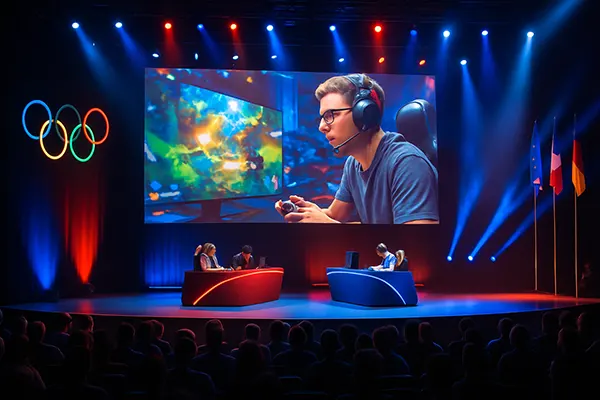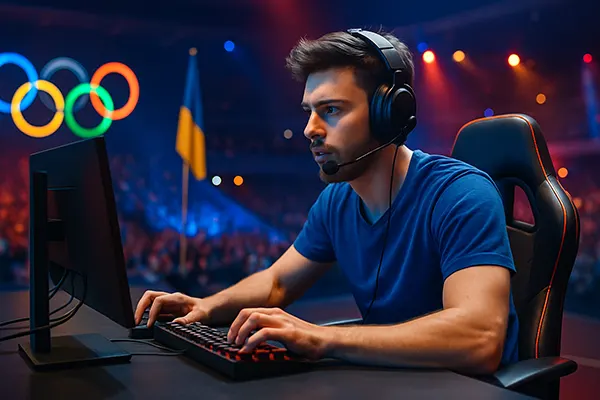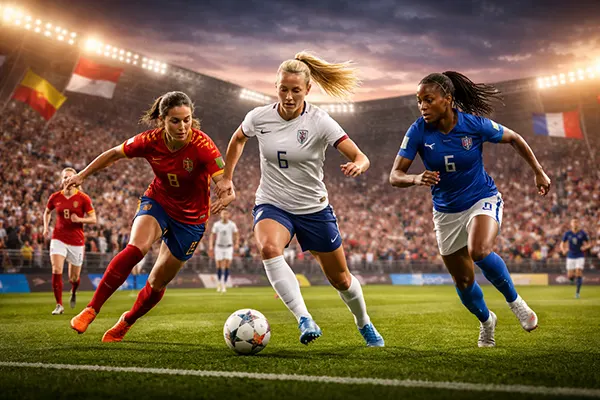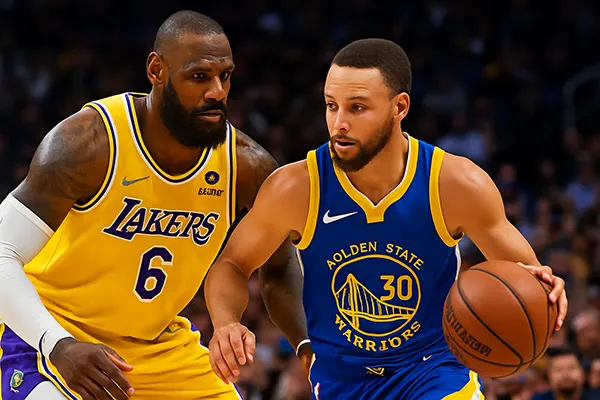Esports and the Olympics 2025: When Will Video Games Become an Official Discipline?

The debate surrounding the inclusion of esports in the Olympic Games has intensified as we approach the Paris 2024 closing and look forward to 2025. Competitive gaming has exploded in popularity, drawing massive global audiences, structured leagues, and players regarded as elite athletes. With such developments, the question is no longer “if” but “when” esports will join the Olympics officially.
Current Status of Esports in the Olympic Framework
As of February 2025, esports is still not recognised as an official medal discipline in the Olympic Games. However, the International Olympic Committee (IOC) has made significant progress in bridging the gap between traditional sports and competitive video gaming. The Olympic Esports Week, held for the first time in Singapore in June 2023, was a landmark initiative showcasing the IOC’s growing interest in virtual competitions.
This event featured a curated list of games considered aligned with Olympic values, such as chess.com, Gran Turismo, and virtual versions of archery and sailing. The selection prioritised simulations over mainstream titles like League of Legends or CS:GO, which are more popular among the esports community but are also known for their aggressive or violent content — a major sticking point for the IOC.
The creation of the Olympic Esports Series as a recurring initiative reflects a strategic approach to evaluate esports within a sportsmanship context. While it does not represent full inclusion, it signifies a long-term engagement plan to assess viewership, public reception, and infrastructural compatibility.
The Challenges of Integration
Integrating esports into the Olympic Games presents multiple hurdles. The biggest challenge lies in aligning the core Olympic values with the competitive gaming ecosystem. Many top esports titles involve shooting or combat mechanics that are viewed as incompatible with the IOC’s ethos of peace and human unity.
Additionally, esports lacks a singular international governing body. Unlike traditional sports governed by federations with standardised rules and anti-doping regulations, esports competitions are often managed by individual publishers with commercial interests. This decentralised structure makes establishing universal guidelines for fair play and athlete regulation particularly challenging.
Technical factors also come into play. Infrastructure differences, such as regional internet stability and platform availability, can create unfair advantages or logistical complications. The IOC is therefore cautious, emphasising responsible exploration rather than immediate endorsement.
The Roadmap to Inclusion
Despite these challenges, a roadmap is beginning to take shape. In 2023, the IOC created a dedicated Esports Commission led by IOC member David Lappartient. This group is tasked with exploring models of integration that could harmonise the esports environment with Olympic frameworks.
One of the most promising developments is the focus on “sports simulations,” such as FIFA (football), NBA 2K (basketball), and Zwift (cycling), which mimic real-world sports within a digital space. These titles offer a bridge between traditional sports and gaming, making them more palatable to the Olympic audience and stakeholders.
Furthermore, youth engagement has become a key metric. The IOC recognises the value of appealing to younger demographics, and esports offers an unmatched channel for outreach. Schools and universities have also started developing academic and training programmes for esports, reinforcing its legitimacy as a structured and demanding discipline.
Esports at Continental and Regional Games
Another significant signal is the inclusion of esports in continental multi-sport events. The 2022 Asian Games in Hangzhou featured esports as a medal event for the first time, with titles like Arena of Valor and Dota 2 officially recognised. The Asian Olympic Council plans to expand on this foundation in the 2026 Aichi-Nagoya edition.
Similarly, the Southeast Asian Games and European Games have experimented with esports as either demonstration or competitive categories. These events act as testing grounds for game selection, operational models, and viewer response. The data and learnings gathered here are likely to influence Olympic decision-making over the next few years.
In Latin America, pilot tournaments under the Pan American Esports Circuit are also beginning to align with continental sports authorities, helping to establish legitimacy and regulatory infrastructure on a global scale.

Predictions and Expectations for Olympic Recognition
As of early 2025, experts remain cautiously optimistic about the future of esports in the Olympic movement. While full medal discipline inclusion in the Los Angeles 2028 Games remains uncertain, many expect a more formalised version of the Olympic Esports Series to take place alongside it — potentially expanding its influence and visibility.
The IOC’s strategy seems to favour incremental steps over rapid change. Rather than rushing inclusion, the emphasis is on maintaining Olympic principles while embracing evolving digital sports cultures. In that sense, esports is already on the Olympic radar, with its influence growing stronger each year.
The Paris 2024 Games did not include esports as a discipline, but the exposure it received during the Olympic Esports Week has built momentum. If current trends continue, esports could see partial inclusion — perhaps as demonstration events — by 2028, with a long-term view towards full integration in the 2032 Brisbane Olympics.
Implications for Players and the Industry
Recognition by the Olympic Games would mark a massive step forward for professional esports athletes. With this status, players could gain access to government funding, Olympic training centres, and broader international support systems that traditional athletes enjoy.
It could also bring more scrutiny. Regulatory oversight, anti-doping protocols, and compliance frameworks would likely become mandatory. Publishers would need to align game versions used in competition with ethical and competitive standards, possibly influencing game design itself.
For the broader industry, Olympic inclusion could serve as a credibility catalyst, accelerating mainstream acceptance, sponsorship deals, and educational development. Esports may not yet be on the Olympic podium, but its trajectory suggests that day may not be far off.



